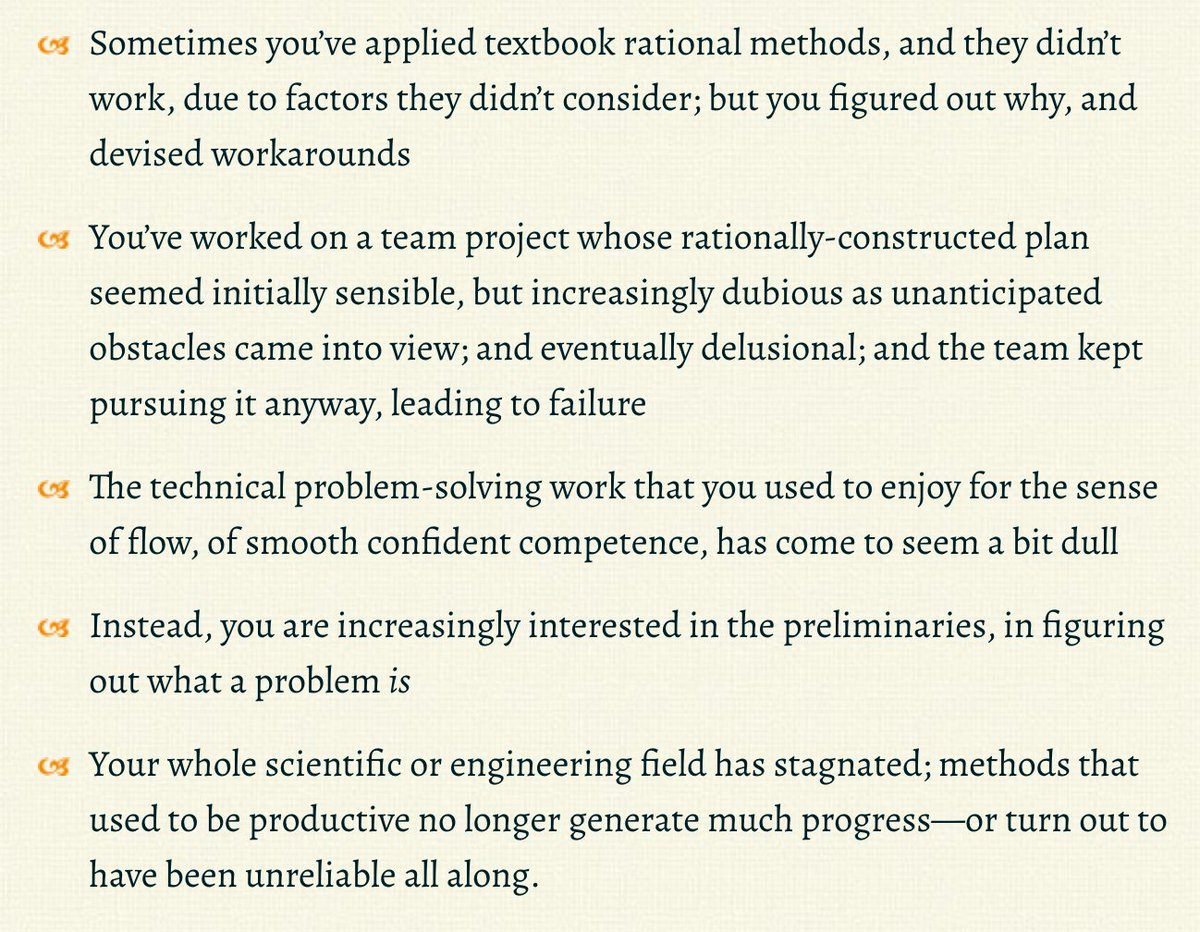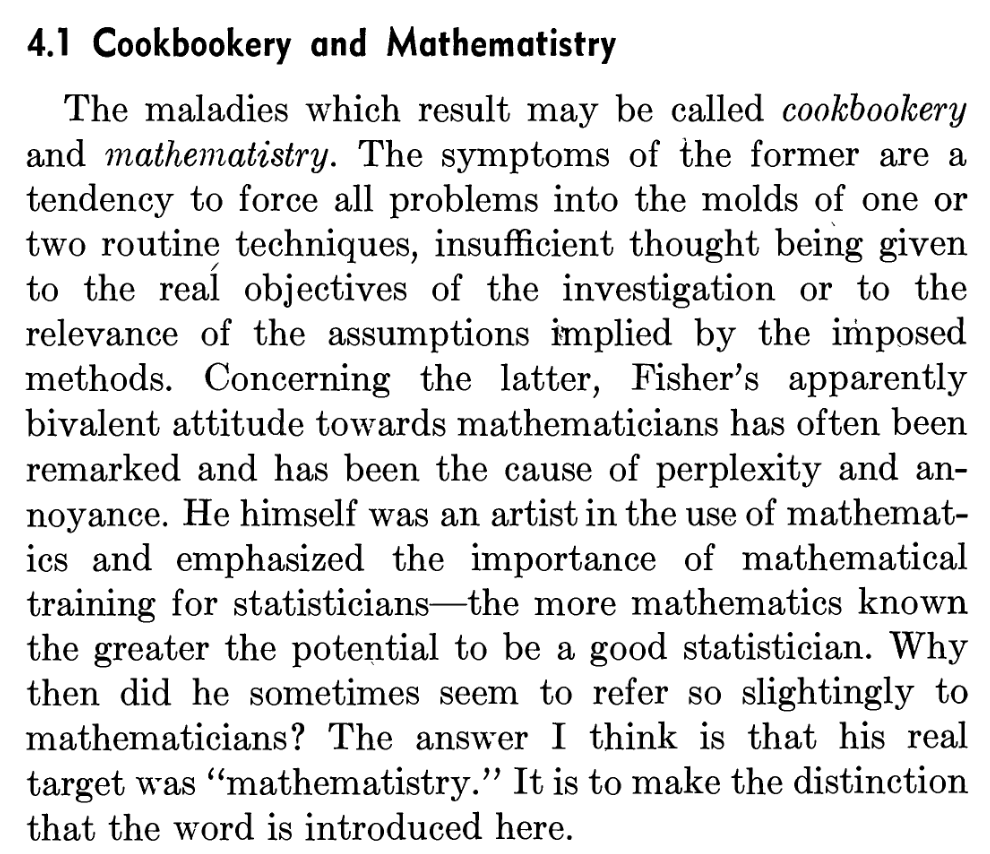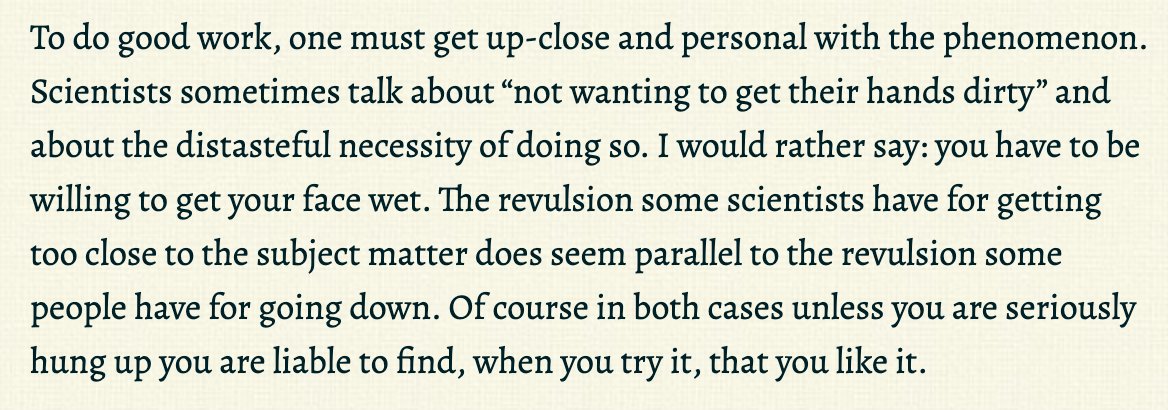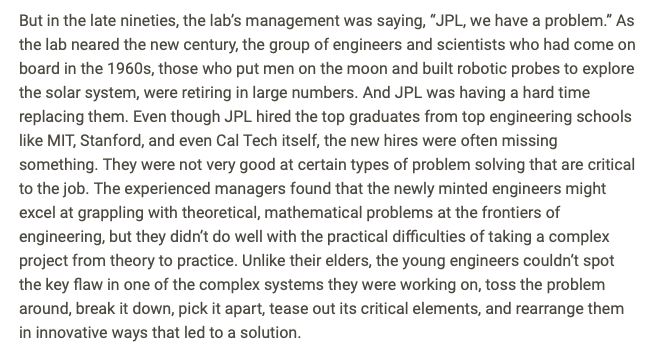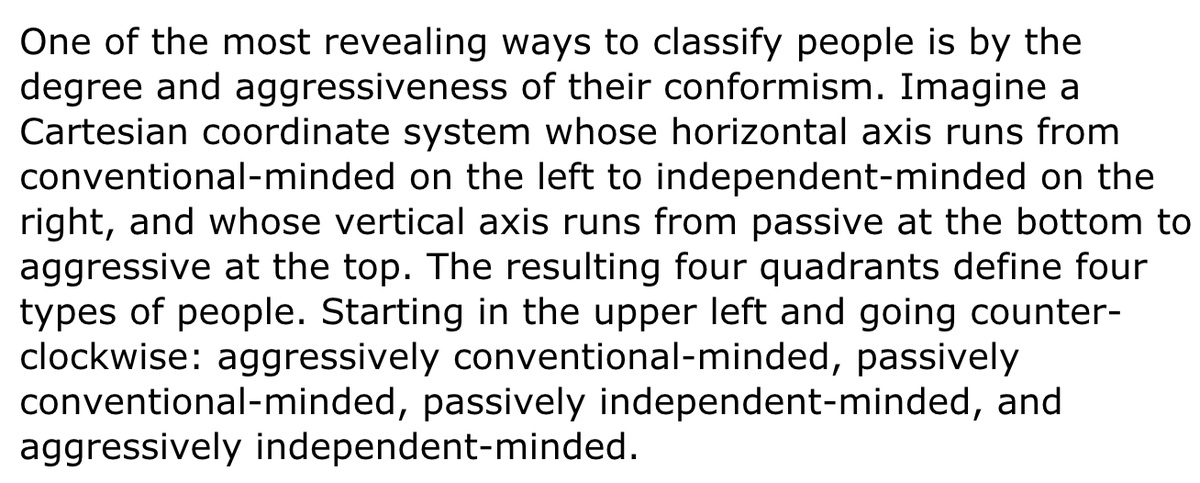
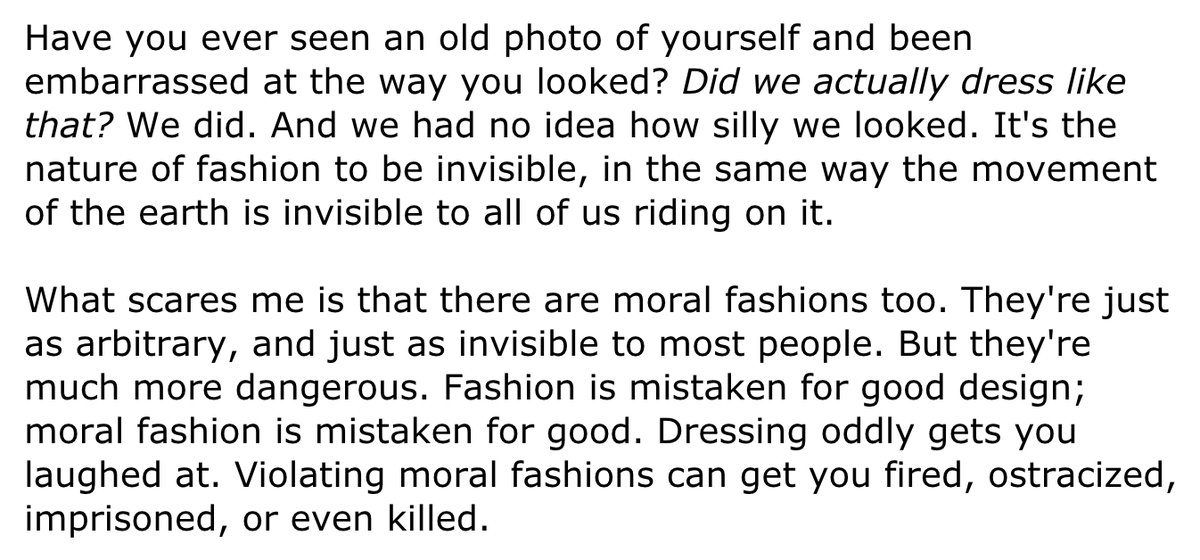


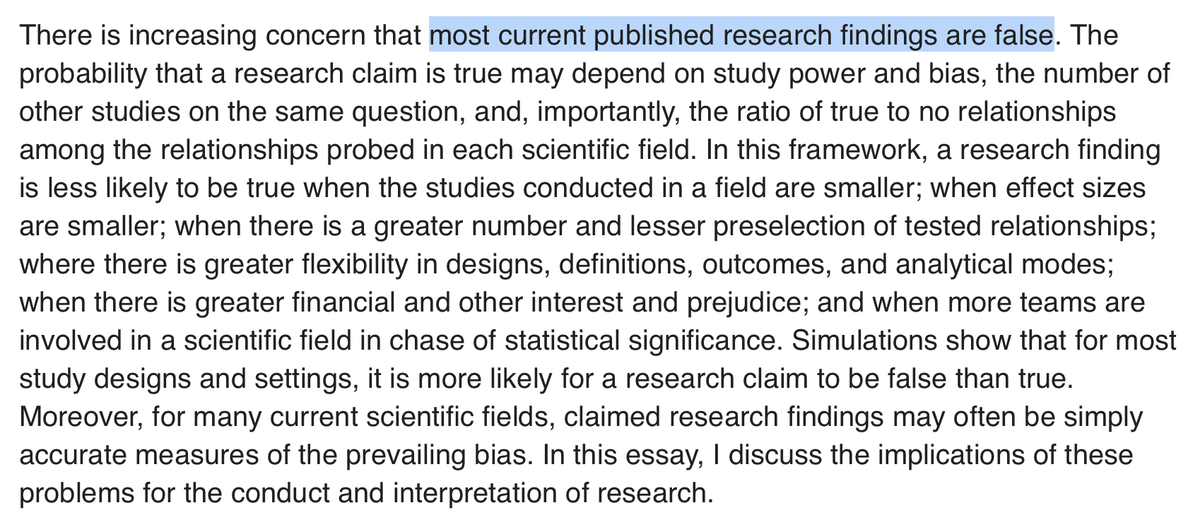
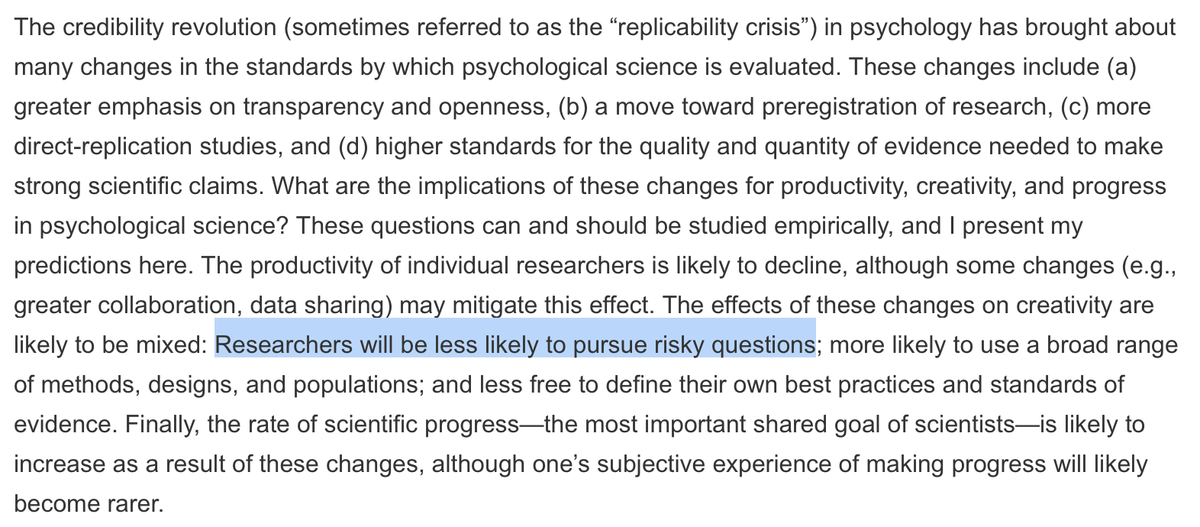
To be a successful scientist, it should be sufficient to work carefully enough that your outputs are meaningful. Too few meet that bar now. 14/
Silicon Valley recognizes it has had no significant new ideas for too long.
"We need a new Xerox PARC!”
"We'll have to invent replacements for research universities." 18/
OTOH, I observe a lack of appreciation for the amount of time it takes to do research carefully enough to get meaningful results—especially, valid unexpected results. 21/
I suspect it’s a serious problem that nearly no one in the SV power scene has a PhD.
The understanding of research you get from a good PhD program is qualitatively utterly different from undergrad/MS STEM. 22/
It is—or should be—utterly different. It requires a new way of being; a personal transformation; a radically altered attitude to knowledge. 23/
SV was about silicon in those days. Maybe you need a PhD for ICs, but not for software?
Computer “science” is mostly useless (unlike semiconductor physics), so maybe a CS PhD is irrelevant. 25/
Some intuitions from SV culture probably can help, but many would misfire. 28/
But, they (we) are the ones who find institutions most oppressive, and may be constitutional misfits. 29/
SV will immediately grok the first of those, less the second, & may be incapable of allowing the last. 31/
Interview the participants. None of us know the whole story, but many who’ve done breakthrough research have anecdotes that would add up. 32/
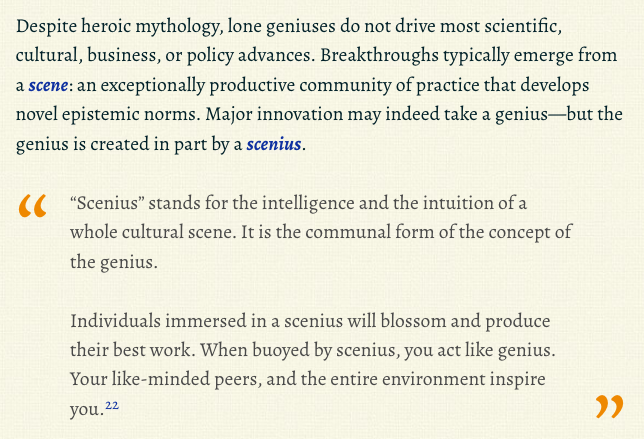
There has to be mutual acknowledgement of excellence in their differing spheres.
That requires actual excellence—but also leadership. 37/
But maybe such leaders are themselves products of an informal scene. They rise to the occasion because they see the necessity, and transform themselves into that. 40/
This stuff is important, though. We’re eating the seed corn.
Progress matters, and requires discovery and invention. We’re decreasingly capable of them. 41/41




